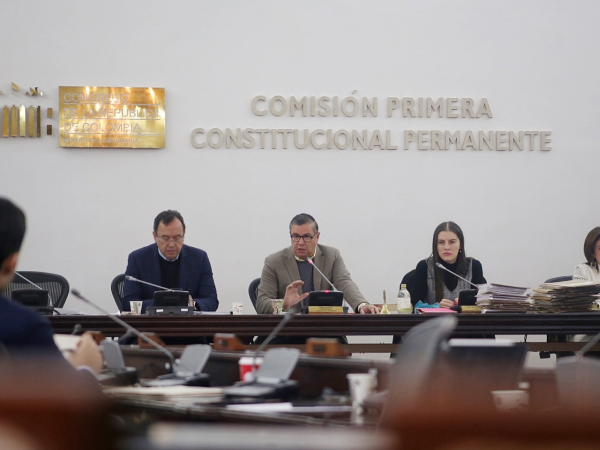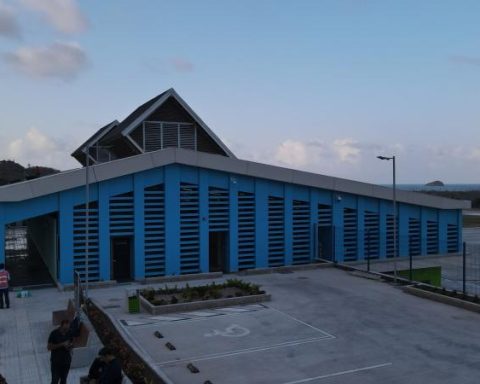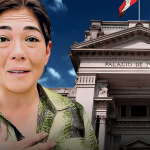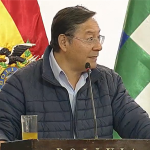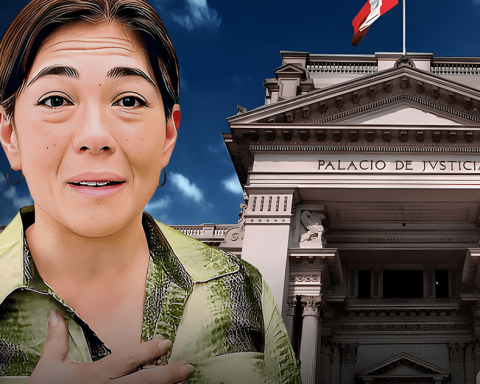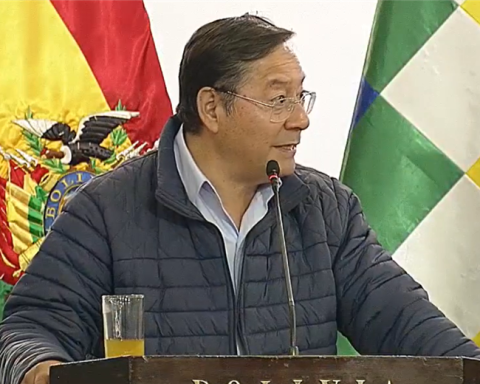The virtual death of political reformafter a trill in which the president Gustavo Petro He assured that in this controversial project that today is undergoing the fifth debate in Commission I of the Senate “no progressive theme left“, It marks the first great defeat of the Government in a Congress in which the pro-government steamroller ruled without difficulties.
According to Petro, “without closed lists and zippers, that is to say that allow equal seats for men and women, and without state financing of the campaigns, the reform does not contribute to an advance in the quality of politics“.
I believe that in the political reform there is no progressive issue left.
Without closed lists and zippers, that is to say that allow equal seats for men and women and without state financing of the campaigns, the reform does not contribute to an advance in the quality of politics https://t.co/G5JPa6ULsq
— Gustavo Petro (@petrogustavo) March 23, 2023
(Petro’s first major defeat: they withdraw the political reform bill).
Those words —which all sectors have interpreted as a thumbs down for an initiative that was born sponsored by the Minister of the Interior, Alfonso Pradaand by the mighty Senator Roy Barreras— They joined a statement from the bench of the Historical Pact in the Chamber in which the project is archived.
Barriers, in fact, the session of Commission I of the Senate began tearing up the text of the reform and declaring it dead.
Prada himself said several times in Congress that if they denatured the reform, they preferred to let it sink. “I spoke with President Petro and he told me that if the reform is not improved, the Government itself is going to ask for its collapse and that we start from scratch, to ratify the fact that we are not married to prejudices. But neither do we renounce the democratic principle of debating and defending what is defensible about the reform, which seems to me that there are many elements that can be defended and we can improve“He commented this Wednesday in the Senate.
(Extraordinary powers and funds, axes of the PND debate).
“In six minutes I am going to open the record of the plenary session, which we all must attend (…), the president decides the time“, he said and withdrew from the premises. After the announcement, one by one the members of the Commission were leaving. “It was a little gamethey said.
Leaving the Fundacion Santafé Cancer Center where the eighth dose of chemotherapy and the portable infusion pump have been placed on me all morning to be able to work today in the afternoon. I’m going to Congress to preside over plenary.
—Roy Barreras (@RoyBarreras) March 22, 2023
Why does a project from the heart of the Government and its main political bishop (Barreras) end up denied by the President himself and his bench? The project from the beginning faced resistance in the coalition, especially in Green Alliance. Katherine Miranda, Catherine Juvinao and Jota Pe HernándezFor example, they always maintained that the effect of the closed lists for Congress sought to benefit the strongest communities and erased them from the political map.
(What’s next for the pension and labor reforms after being filed).
The closed lists are considered the heart of the project, they are the great bone of contention. Roy himself has said that these are “mandate of point 2 of the Teatro Colón Agreement“so for him”the only thing that matters about the reform is the Closed list. Everything else can disappear. Clientelists and winemakers come together against change“he said this week.
Opponents of closed lists consider that the reform does not make it clear how the lists will be put togetherwhich they consider gives space for the “owners of the parties” to arm them in an undemocratic way. They also point out that it is a way to hide the “undesirables”.
It is incredible that the only ones who oppose the collapse of the monstrous POLITICAL REFORM are the two senators of the HISTORICAL PACT María José Pizarro and Alexander López / this reform is an attack on democracy and Colombians REJECT IT! pic.twitter.com/pouiLA6pHv
— Jota Pe Hernandez (@JotaPeHernandez) March 22, 2023
(‘Have a dignified old age’, key to the pension reform for Petro).
Miranda, for example, He even said in the Chamber that he was disappointed in the Government because it was giving minorities a blow with this project, since a proposition was included that prevented minority parties from forming alliances in the face of the elections and left this possibility open only for the large parties. Faced with this, he stated that he felt “hurt, embarrassed and deeply disappointed“.
But it also revived controversial figures eliminated by other political reforms of the past, under the understanding that they were an open door for improper practices: the project of the Government and Roy Barreras made possible the turncoat (the jump from one party to another, in what was interpreted as a maneuver to attract collaborationist congressmen to the Pact) and revived the revolving door between Congress and the ministries.
That possibility, that a congressman in office could jump to the Government, It was eliminated by the Charter of 1991 to prevent the Executive from attracting the votes it needed in the Legislative with appointments.
(Pension reform would give rise to a new savings fund).
This, according to experts, was a blow to the Constitution. For Juan Carlos Esguerra, former Minister of Justice and who was a member of the National Constituent Assembly, he told EL TIEMPO at the time that “the matter is very serious. First, it is a serious attack against the separation of powers. It is to convert the congressmen into the Government, with what that has inconvenience. On the other hand, it seriously damages the political control of Congress because for that, there is a need for independence between one body and another. Imagine what political control there is going to be if one is going to exercise it with whoever he was at his desk until the day before. That makes no sense“.
“It’s bad for the separation of powers, bad for political control, bad because it also turns ministries into jam. Seems negative every way I look at it”, he added.
The truth of the Political Reform is that the House of Representatives made an effort last semester for the process to continue, but I am sure that in this last debate we will not lend ourselves to perpetuating undemocratic practices.
—David Racero (@DavidRacero) March 23, 2023
The Petro government defended it due to the supposed need to be able to bring to the administration the people who know the most about key issues for the country, among them congressmen who have been handling the same issues in their commissions for years. In the halls of Congress, this article was called the “Roy article”, because they say it was a proposal from the president of the Senate, who has said that in June he will resign from his seat.
(Mintransporte proposes to reduce VAT on air tickets from 19% to 5%).
But in addition, to that revolving door an addition appeared for a second round: they put the carrot that the congressman who was appointed in the Government could return to his seat when he retired from the cabinet. The same Historical Pact describes this proposal as “political”.
“It has been shown how far the political and political class would go to be able to perpetuate themselves and what changes they are willing to make. As a result, the text of the political reform today is completely different, since it has several provisions that are considered problematic.“, says the statement of the representatives to the camara of the President’s party.
This Thursday, Commission I of the Senate began a session with the vote on the file proposed by the Radical Change, now officially in the opposition, and the Democratic Center. But even if after the President’s signal the reform would have continued alive, nothing guarantees that the same Historical Pact in Chamber would not bury a project that, for many of its members, It has more the stamp of Senator Barreras and Minister Prada, whom they do not identify as being from the President’s political heart.
(Where will the money come from to finance Petro’s pension reform?).
The Government loses because it is witnessing the virtual collapse of one of its main initiatives just at the moment when a Congress that has shown signs of rebellion begins to vote on the most important social projects for Petro, which are its Development Plan and its labor, pension and health reforms.
But it is also a blow, now supported by the Historical Pact, for Roy Barreras, who has been critical of the official version of the health reform and to whom his peer in the Chamber President, David Racero, came to qualify three weeks ago as a kind of “spokesman for the opposition.”
(Petro and Maduro are already meeting in Caracas: what is known about the meeting).
“The truth of the Political Reform is that the House of Representatives made an effort last semester for the process to continue, but I am sure that in this last debate we will not lend ourselves to perpetuating undemocratic practices“, trilled the president of the Chamber minutes after the message from the head of state.
The Government, without a doubt, does not spend a good hour in Congress, which is not convenient for it in the face of the great social reforms that will be discussed this semester and that, without a doubt, will require that its coalition be solid. But, for now, the steamroller of the past semester seems to be hurt and it does not seem easy to consolidate it.
WEATHER – POLITICS
